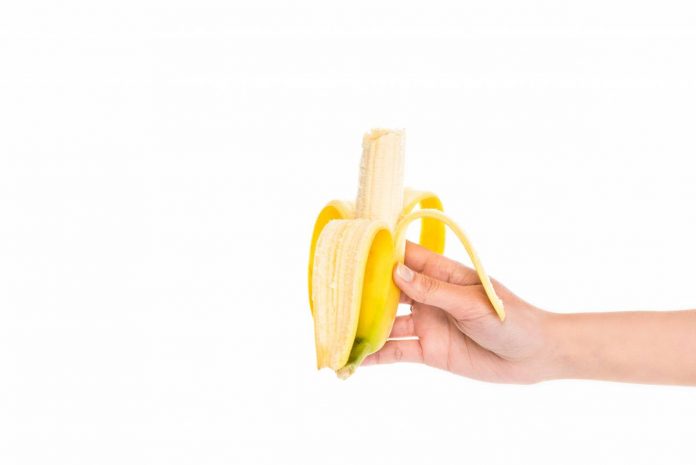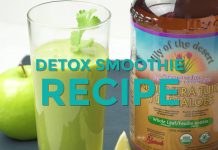
You just purchased a bunch of organic bananas from the market. You get home, peel one, and sit back as you savor the flavor and reflect on all the nutrients your body will enjoy from this treat.
Or will it?
According to the USDA food data chart, that banana you just ate provided you with (approximately) 326 milligrams (mg) of potassium, 28 mg of magnesium, 5 mg of calcium, and 144 micrograms of folate. But how much of it will your body actually absorb and utilize?
We know that soil health, growing environment, processing, transportation and storage factors, and other elements can all affect the nutritional value of our food, fresh or processed. Yet at the end of the day—or the moment of truth when you are ingesting the food item—how much influence do you have over how much of the nutrients your body will effectively absorb into the circulatory system and use?
Read about 5 ways to better absorb vitamins and minerals
Boosting nutrient absorption
Here are six tips that can improve your body’s ability to absorb the maximum amount of nutrients from food.
Follow this motto: Variety is the spice of life. When you give your body a wide variety of nutrients at every meal, you are much less likely to experience a deficiency or low levels of certain nutrients. Insufficient levels of specific nutrients can have a negative impact on biochemical reactions and in turn, cell and organ function.
Supplement with aloe vera. You may know aloe vera as a natural remedy for burns and other skin irritations, but it also supports the bioavailability of vitamins, especially vitamins B12 and C.
In a study appearing in Phytomedicine, experts tested aloe in two different forms–whole leaf extract and inner leaf gel—in volunteers. They found that both forms of aloe slowed the absorption of vitamins C and E and lengthened the amount of time they lasted in the plasma. Aloe helps with nutrient absorption by regulating stomach acids to ensure optimal digestion of nutrients and caring for the intestinal tract so it is better able to absorb nutrients. Aloe vera supplements can be taken as a juice, gel, powder, or pill. [Editor's Note: We try to drink a little aloe juice each day and our favorite brand is Lily of the Desert.]
Read about is your medication depleting nutrients
Pair up your food. Certain food and supplement pairs work to boost nutrient absorption. Vitamin D, for example, helps capture more calcium from both foods and supplements. That’s because vitamin D triggers the activity that boosts the absorption of dietary calcium in the intestinal tract.
To ensure you are getting all the essential amino acids you need, you should eat a variety of foods with protein. Complete proteins are often obtained from animal sources, soy foods, quinoa, and amaranth. Incomplete proteins are from plant sources but can be paired together to make a complete protein source. For example, beans and rice, nut butter and whole wheat, and lentils and barley.
Fat-soluble vitamins (vitamins A, D, E, K) need a fat source to be absorbed in your intestine. The preferred fat source should be primarily unsaturated fat such as seeds, avocado, nuts, or olive oil. The vitamins A and K in kale and spinach, for example, will be better absorbed if you drizzle olive oil on them and add a few hemp or pumpkin seeds as well.
Chew, chew, chew. Digestion begins in the mouth, and a healthy start can help ensure more thorough absorption. Many people don’t take the time to chew their food until it is in a liquid form, which may take chewing up to 30 times or more depending on the food.
Watch coffee and tea intake. The caffeine in coffee and tea can interfere with the absorption of calcium, iron, magnesium, and the B vitamins as well as cause depletion of vitamin B6. To help avoid this, don’t drink these beverages with your meals. Coffee and tea are also diuretics, which can reduce the number of digestive enzymes and interfere with digestion and nutrient absorption.
Reduce stress. Unmanaged stress, especially chronic stress, increases your body’s need for certain nutrients, including the B vitamins, vitamin C, and magnesium. Therefore practicing stress reduction activities daily, such as meditation, yoga, progressive relaxation, deep breathing, and tai chi, is an essential part of improving nutrient absorption. Sufficient sleep, 7 to 8 hours a night, is also an important part of stress reduction.
Bottom line
Even if you eat the most nutritious foods, you may not be adequately absorbing all the nutrients from them. Adopting a few lifestyle tips can improve the nutritional value you get from your food choices.











